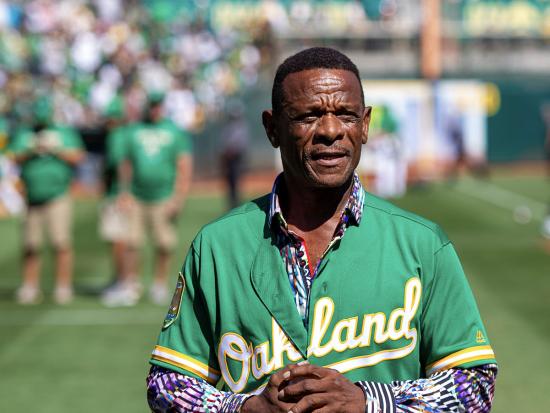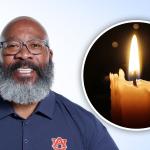
The baseball world mourns the loss of one of its brightest stars, Rickey Henderson, who passed away on Saturday at the age of 65 after a long battle with pneumonia. Known as the “Man of Steal,” Henderson’s career was nothing short of iconic, but his impact extended far beyond the diamond. A Hall of Famer, a beloved teammate, and a man of faith, Henderson’s life was a testament to excellence, perseverance, and joy.
While Henderson’s name is synonymous with the Oakland Athletics, and he spent the majority of his career there, his time in New York with both the Yankees and Mets cemented his legacy as one of the greatest players to ever wear a baseball uniform.
Henderson’s New York chapter began in December 1984 when the Athletics traded him to the Yankees in a blockbuster deal. He quickly became a force in pinstripes, switching to the number 24 and dominating the league in his first season. In 1985, Henderson led the league with 80 stolen bases and 146 runs scored—becoming the first player since 1939 to score more runs than games played in a season. His .314 batting average ranked fourth in the majors, earning him the American League’s Silver Slugger Award.
Teammates marveled at his unmatched ability to impact the game in countless ways. Don Mattingly, reflecting on Henderson’s career, said, “Rickey was simply the best player I ever played with. He could change the outcome of a game in so many ways. It puts a smile on my face just thinking about him. I will miss my friend.”
Over his three and a half seasons with the Yankees, Henderson stole 326 bases—a franchise record until Derek Jeter eventually surpassed it after playing 1,700 more games in pinstripes.
“Pound for pound, Rickey Henderson was the greatest player I ever played with,” said Willie Randolph. “He possessed so many talents that could positively impact the outcome of a game. I’m going to treasure the memories Rickey and I shared together. He was a special man.”
Henderson returned to New York in 1999, this time donning a Mets uniform. At 40 years old, many questioned whether he had anything left to prove. But Henderson silenced doubters with a resurgent season that earned him the National League’s Comeback Player of the Year honors. He batted .315, swiped 37 bases, and posted the seventh-highest on-base percentage in the league, proving once again that age was no match for his skill and determination.
Henderson’s leadership and prowess at the leadoff spot helped the Mets reach the postseason for the first time in over a decade. While his tenure with the team ended on a sour note in 2000, his impact was undeniable. Mike Piazza, reflecting on their time together, wrote, “Rickey Henderson was a dream to hit behind as [a] teammate and a nightmare for a catcher as an opponent. He was one of the most generous, hysterical, and gracious human beings.”
While Henderson’s career numbers are legendary—1,406 stolen bases, 2,295 runs scored, and 81 leadoff home runs—his legacy is much more than statistics. Henderson was a man of faith who believed that his God-given abilities came with a responsibility to inspire and uplift others.
“God blessed me with the ability to play this game, and I tried to honor Him with how I played,” Henderson once said. His faith kept him grounded through the highs and lows of his career, from his record-breaking moments to his departures from teams.
Beyond baseball, Henderson cherished his role as a husband, father, and mentor. His family was his greatest joy, and he often credited their support as the foundation of his success. Off the field, Henderson was known for his humor and generosity, qualities that endeared him to teammates and fans alike.
Henderson’s influence on the game of baseball is immeasurable. He redefined the leadoff position, showing that speed and power could coexist at the top of the lineup. His daring base running and unmatched confidence made him one of the most exciting players to watch—and one of the toughest to play against.
As both a player and coach, Henderson inspired generations of athletes to embrace their unique talents and play the game with passion. His brief stint on the Mets’ coaching staff in the mid-2000s was a continuation of his commitment to giving back to the sport he loved.
As the baseball community and fans worldwide remember Rickey Henderson, the overwhelming sentiment is one of gratitude. Gratitude for the unforgettable moments he brought to the game, for the joy he exuded on and off the field, and for the faith he lived out so authentically.
“Rickey taught us how to play the game with heart and soul,” Randolph said. “He wasn’t just a great player—he was a great man.”
Rest in peace, Rickey Henderson. The game—and the world—was better with you in it.

